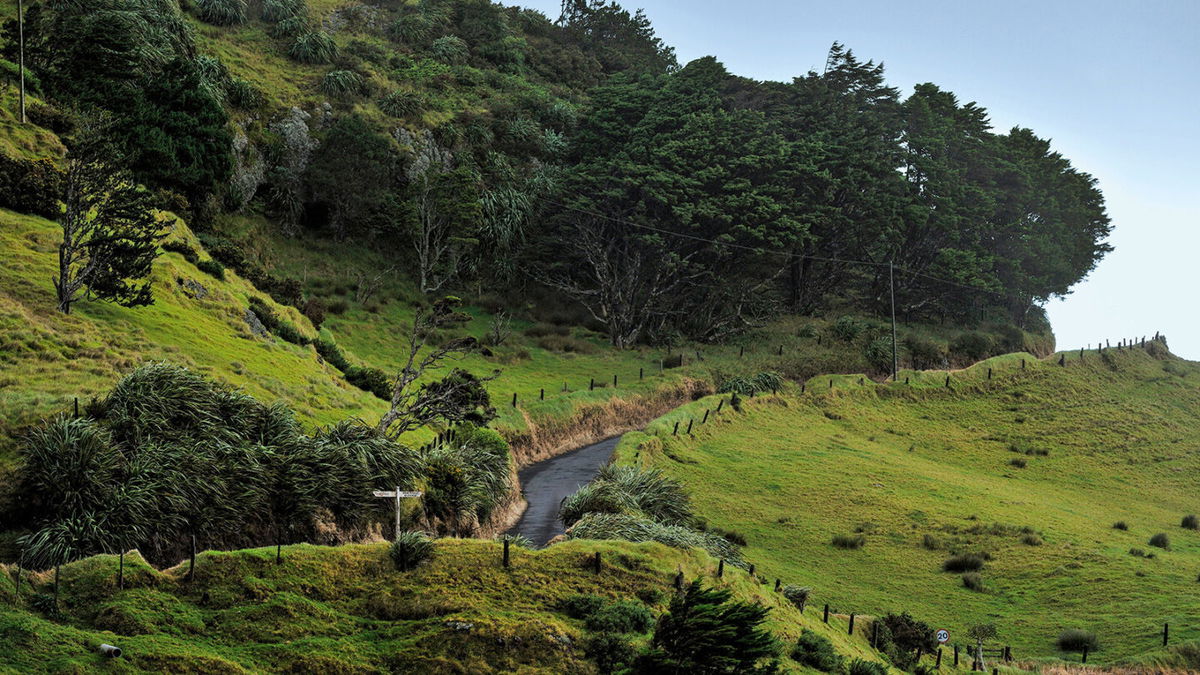Photographer chronicles remote adventures across the world

The island of St. Helena
Francesca Street, CNN
For Belgian photographer David De Vleeschauwer, the best travel destinations are often the hardest to get to.
De Vleeschauwer is fascinated by the concept of “remote” travel — it’s a subjective concept of course, one traveler’s remote location is another traveler’s local hotspot — but De Vleeschauwer reckons that subjectivity is what makes it interesting.
“Remoteness for everyone depends on your personal situation,” De Vleeschauwer tells CNN Travel.
In a new photo book “Remote Experiences: Extraordinary Travel Adventures From North to South,” published by Taschen, De Vleeschauwer highlights 12 destinations that he describes as “off the beaten track.”
“For more than 20 years I’ve been on the road,” he says. “You’re always looking for new angles — new, interesting places.”
Travel experiences spotlighted by De Vleeschauwer in the book include the imposing Nordic islands of Svalbard, the striking watery landscape of the Okavango Delta in Botswana and the icy grandeur of Antarctica.
“Eclectic mix”
De Vleeschauwer describes himself as a “slow traveler” who revels in returning to favorite locations. Several of the locations in the book he’s visited numerous times, and De Vleeschauwer wanted to bring this expertise to the table, as well as to to highlight a range of destinations dotted across the Earth.
“What’s really special about the book, I think, is the eclectic mix of different places,” he says. “They all share this common denominator, the remoteness.”
De Vleeschauwer sees each of his 12 destinations as remote in different ways. For example, one of the destinations he highlights is North Korea, a place less geographically remote than ideologically so.
De Vleeschauwer also wanted to highlight “unbelievable, unbeatable experiences” in each destination, at a range of price points — the experiences in this book cost anywhere from $250 (sheep herding in Abruzzo, Italy) to over $1 million (a chartered superyacht in Antarctica).
He hopes to inspire the reader — and perhaps provide a slice of escapism — but also wants to give practical advice on how to follow in his footsteps, each chapter is peppered with detail on accommodation, flights and travel logistics.
Take Svalbard, for example, De Vleeschauwer notes that while many travelers go to this Norwegian Arctic outpost during the islands’ summertime, he prefers to go in early spring.
“End of February, beginning of March, when the sun doesn’t go above the horizon,” he says.”It’s just amazing.”
De Vleeschauwer’s awe-inspiring photographs are complemented by words from his travel journalist wife and frequent travel partner Debbie Pappyn, alongside contributing essays from a handful of other travel journalists.
Carving your own path
De Vleeschauwer also question of the ethics of traveling. “Am I contributing to their decline?” he writes in his foreword of his chosen destinations. “In looking for the ‘remote’, am I exoticising someone else’s reality for my own fleeting moment of escape?”
He doesn’t come to any easy or obvious answers, but says he has the best of intentions.
“The last thing I want, of course, is to destroy the destinations because of the book,” he tells CNN Travel.
“We are privileged to go to those places and we have to protect them as well.”
Many of De Vleeschauwer’s photographs showcase breathtaking landscapes, but he’s also keen to profile people and wildlife.
It’s important to him to strike a balance between interacting with and learning from locals, and respecting their privacy — his photography motto is “tread lightly.”
“I hate it when people arrive somewhere as a paparazzi, professional or a tourist, I think we have to be a bit more respectful and a bit more slower,” he explains.
De Vleeschauwer recalls two weeks living with local families in Mongolia during the Kazakh Eagle Festival in Bayan-Ölgii. There was a language barrier, but he says they still found ways to connect and enjoy quality time.
In Upper Mustang, in northern Nepal, he enjoyed dining with locals.
“I had no translator,” he says. “It’s really intense and a privilege.”
De Vleeschauwer hopes readers of the book will find inspiration in the book and in his travels. He runs his own travel excursions to “wherever his pioneering spirit is drawn,” as he puts it, and at the end of the book encourages readers to get in touch if they want to join in.
But his main aim is to encourage travelers to avoid following “the movie script of someone else.”
“It’s good to be a bit out of the box,” he says.
The-CNN-Wire
™ & © 2022 Cable News Network, Inc., a Warner Bros. Discovery Company. All rights reserved.